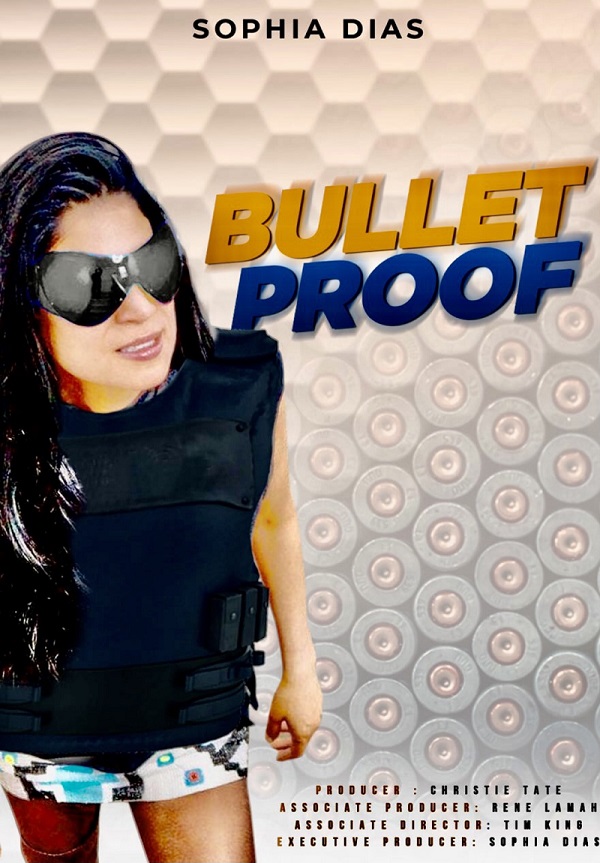Want to get your music out to over 40k radio and sound system dis? CLICK HERE
Stay up-to-date with all that's new at Dancehallreggaeworld, Click Here to subscribe for my updates and don't miss a thing!
How do you break a Dancehall record in the US mainstream? Part 1
ts the Holy Grail for any Dancehall/Reggae artist or producer – to find that elusive crossover hit that gets play-listed on mainstream US radio and finds itself on Billboard.
Shifting units like never before, a welcome spike in performance fees,
even a record deal are all possible outcomes. But its hard. Its always
been hard and its been getting progressively harder in recent years due
to a number of factors; some of our own making and some down to the
rapidly changing face of mainstream radio and record labels in the US.
Everyone
on the outside looking in has an opinion – you should go with this
record or that riddim, but very few people understand the process and
obstacles in the way for Jamaican music in the mainstream, so I thought I
would share some thoughts and experiences.
How does it work?
Well,
the records that have traditionally worked best are those already a
huge smash in Jamaica, better still those that have also saturated the
Caribbean and Dancehall scene in the US. No Games, Hold Yuh and Nobody
Has To Know all broke in the core outside of Jamaica first. These
records reach the ears, albeit somewhat delayed, of US Program Directors
and DJs naturally. They grow organically and will always have the best
shot at the title.
With assists from WZMX in Hartford, records
that have crossed over in recent years have almost all started on New
York’s HOT 97. New York is a huge diaspora market so the big Dancehall
records will get picked up naturally and may get added at the lowest
level of rotation first – in mix shows, without any lobbying. Then after
a finite number of spins on-air the record will be tested with random
listeners and if it comes back positive it will step up a notch or few,
until you reach daytime rotation.
Your record is on air on the
hottest radio station in the US, but you need it to grow and pretty
rapidly too. Radio stations all like to see a story around the
record/artist. Is there a video? Is the artist doing sold-out shows in
the market? Is there a record label supporting the song? Is there
strong, proactive management who are well-connected and well-respected?
Is the artist on the right blogs? What are online analytics looking
like? The Sound Cloud and You Tube plays, Spotify numbers, IG follower
count, the list goes on.
Then the radio station will want to see
other stations started playing it, which again may happen organically in
one or two other markets for Dancehall/Reggae records; Hartford and
Boston will most likely be next. Now’s a good time to get a dedicated
radio promotion guy on your team. You, your manager and your radio guy
need to be attacking PDs and DJs in markets such as Florida, DC, the
Carolinas, upstate NY etc. The PDs at those stations will all pull up
BDS to check spins, which will tell them who’s playing it where, how
many times per week and if the record is growing or dying already. They
will also want to see a masterplan for the record.
Dancehall only really ever has one slot on any US radio station and the
majority of stations don’t even have that slot. The slot is also
sometimes restricted; unfortunately it often feels like our genre is in a
box marked “Summer Only” or “Novelty.” So the window is even smaller
and harder to get through. It helps to open the window if a hot US act
jumps on the record – Hold Yuh’s success and ability to get played on
such a wide range of markets was undoubtedly helped by Nicki Minaj’s
timely remix, which helped revitalize it and propel it above and beyond.
But its also been a while since that has happened.
While his/her
team are working on all of the above, the artist should be doing drops
and dub plates round-the-clock for radio stations and their DJs. They
should be calling in to or visiting as many stations as they can for
interviews and also be jumping in the clubs with the station’s on-air
personalities.
Unfortunately work ethic and the short-sighted approach
some of our artists have towards doing these things means the record may
very well stall because they’re not out there fighting the cause.
Shaggy, still the most dedicated and hardworking of all Jamaican acts,
will take a plane at 5am just to go and do a free show for a radio
station or an interview because he understands that’s what it takes and
it will pay off in the long run. He’s an excellent mentor for any young
act to learn from.
All of the above takes a lot of time, money
and energy and unfortunately we have been our own worst enemy when it
comes to putting in the work it takes to get where we should be. There’s
no doubt that Dancehall artists are, rightly or wrongly, widely
perceived as unprofessional, demanding and problematic. If you’re happy
mashing up the 14 parishes, keep it up, if you want more then it takes a
whole lot of work.
What I have also discovered is its very hard,
nigh on impossible, to break a record by a Dancehall act that is NOT
the biggest record in Jamaica or the core market. Its the first question
you will be asked by a PD – “Is it hot in Jamaica?” If they are even
asking you that, they know the answer already. Having built and leaned
on great relationships over the years I have managed to get some records
into rotation that haven’t been huge in Jamaica but they have all
fallen pretty much at the first hurdle.
If you’re trying to break
an artist or a record in the US, take my foolish advice and pay
attention to getting that record hot in the core as well. This also goes
for follow-up records – second singles. Elephant Man caught a break
with Pon Di River and Jook Gal, but we had only modest success with
Serani’s second single She Loves Me, the follow up to his 400k-selling
No Games. We ended up only selling about 60k, got a decent number of
spins but it faded from there. Gyptian’s follow-up to Hold Yuh didn’t
even fair as well as that, so when your record is buzzing Stateside, you
need to be working on getting your next record hot a Yard.
Why it got harder:
A few years ago, around the time Dancehall
went all fusion and chasing a hybrid urban sound, I noticed Program
Directors and DJs in the US were all asking me the same question:
“Why aren’t they making any good rhythms in Jamaica anymore?”
In
my opinion, the effect that had caused those same PD’s and DJs and more
importantly music lovers and radio listenership to tune-out of our
genre. We stopped making those bone-knocking boof-baff records that
grabbed their ears in the first place so they just listened to something
else.
We fell off the radio and are still trying to recover.
At the
same time we fell off the FM dial radio became a business more than ever
in the US, as internet and satellite radio threatened their monopoly.
Owned by publicly-traded corporations, the advertising dollar and
listener numbers/market share are the beginning and end for them. Some
station bosses realized their Reggae and Dancehall specialist shows
weren’t bringing in the numbers or dollars and have been re-formatted,
moved to graveyard shifts or cut completely, narrowing our lane even
further.
Simultaneously the radioscape in Jamaica changed
dramatically too. With the accessibility of technology, quantity over
quality mushroomed to levels never seen before. Its easy to become a
producer or an artist now, so an already crowded space turned into a
room where nobody could breathe. Payola rampaged and there were/are an
infinite number of willing participants on both sides – some even paid
disc jockeys and selectors to NOT play the records of rivals.
Radio disc
jockeys, selectors, dancers became producers and artists, which for the
record I have no problem with, but they all want to hear their records
being played too. Side-taking and bias also ballooned. Dancehall has
thrived on rivalry but when we formed the Alliance and then the
Gully/Gaza feud exploded, it fragmented the business even further.
Wether they will admit it or not, some disc jockeys took sides, the
feelings of which are still being carried. Jamaican radio arteries were
getting blocked. Chaos ruled.
The worst outcome of all this
disorder meant hits, real hits, weren’t getting the chance to be made
anymore. The records and talent were there but weren’t getting a chance
to stay on air or in the ears of anyone long enough to become a hit.
When you visit the US and listen to FM radio the first thing you notice
is it feels like the same set of records are being played over and over.
It may get tiresome but thats how hits are made – persistence. Its
genuinely hard to name a bonafide Record of the Year in Jamaica for many
years now.
The preeminent Dancehall radio promotion person in the US told me he thinks the last record that was the biggest song in Jamaica that worked at radio in the US was Dutty Whine. I would argue So Special but whatever it is, its been a while since it happened. As one record rises another one takes its place, this week this riddim is the hottest, next week its something else.
Its also been reflected in the longevity of artists who are claimed to be “hot.” How many artists have managed to buss and maintain, much less take it to the highest level in recent years? Since Mavado and Kartel how many artists can claim icon status?
I-Octane, Konshens, Demarco and others are all extremely talented and if
the environment was different – where their talent had some elbow room,
they probably would be even bigger.
Slow down people. Lets get back some quality control inna di ting.
How do you break a Dancehall record in the US mainstream? Part 2
Want to learn more about Reggae Music? check these pages below...
New! Talk to me
Was the information helpful? Something needs changing? I welcome your feedback here.
Great Articles You Might Have Missed
Please send us your Feedback, News, Photos, Press Releases, Music and/or Videos to our WhatsApp Number: 1-876-395-8008 or Email: necoflex@gmail.com
Not what you are looking for? Search the web for more Dancehall Reggae music information below...











New! Comments
Have your say about what you just read! Leave me a comment in the box below.